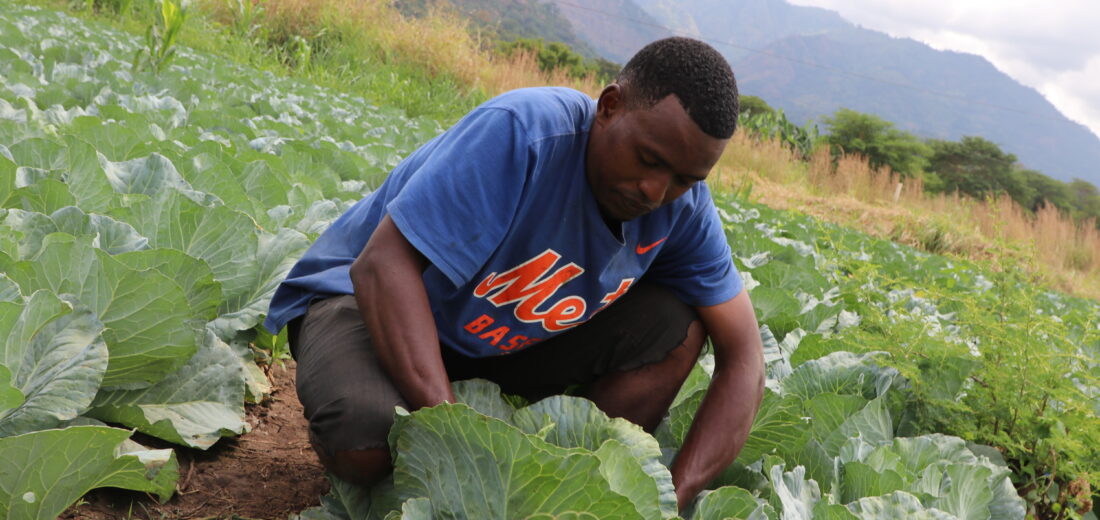
TANZANIAN YOUTH REVOLUTIONISE AGRICULTURE IN MOROGORO’S FIELDS.
The agricultural prowess of Tanzania is deeply intertwined with its diverse geography and abundant natural resources. From traditional crops to innovative ventures, the country’s agricultural landscape is evolving, making it a key player in food production in the region. This transformation is being driven by a new generation of determined and enterprising young individuals who are rewriting the narrative of farming as a livelihood choice.
Tanzania owes its agricultural success to its remarkable geographical diversity. From the fertile plains of Kilimanjaro to the lush valleys of Morogoro and the enchanting tropical coastline, the country boasts a wealth of natural resources that contribute to its prowess in agriculture.
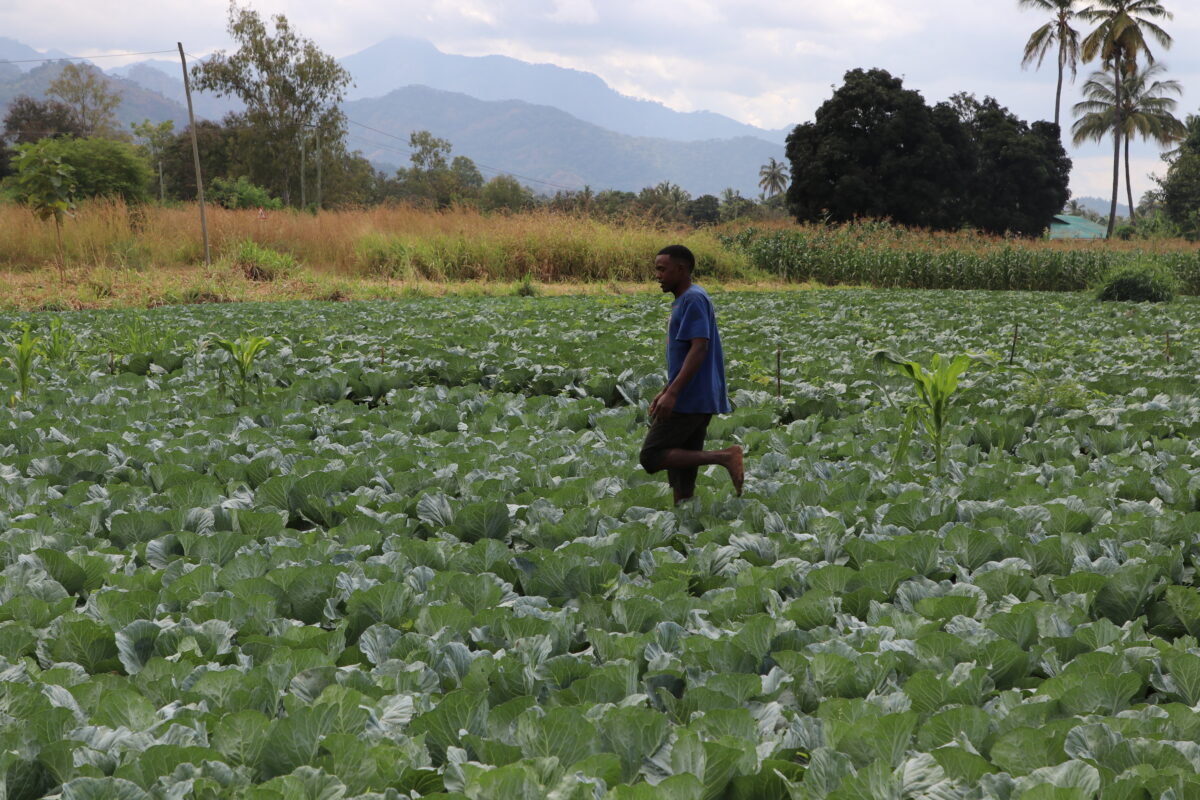
The agricultural sector of the country has long been dominated by the older generation of farmers. However, there is now a gradual yet consistent increase in the participation of young individuals. Young Tanzanians, armed with innovation and a deep connection to their land, are stepping up to embrace the potential of agriculture as a viable and rewarding career choice.
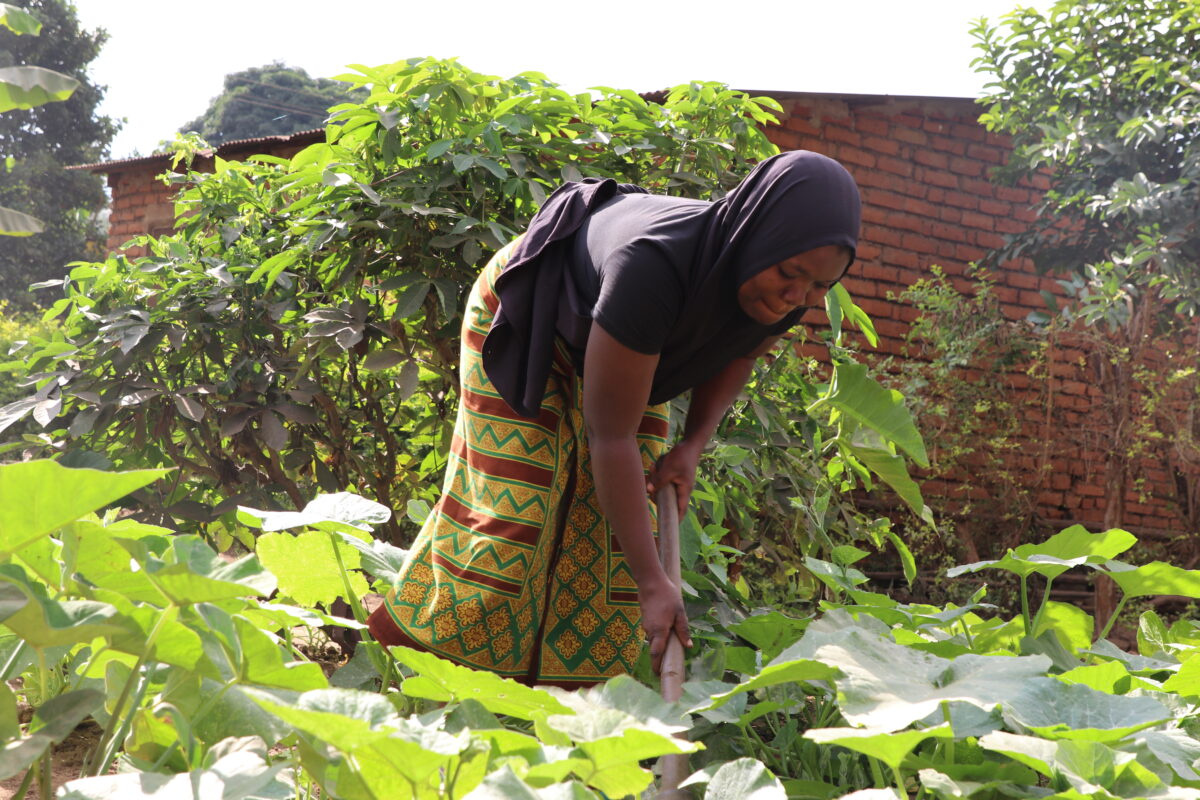
In the picturesque town of Morogoro, nestled against a breathtaking backdrop of undulating hills and verdant landscapes, a thriving community of dedicated farmers is emerging. Young and aspiring, these agriculturists are defying conventional norms. They are showcasing that farming is not just a means of livelihood, but also a pathway to success that can be pursued by the younger generation.
The Trailblazers
It is here that the remarkable 33-year-old farmer Victor Tobias Kadudu of Msufini village is making his mark. On his farm, one section boasts vibrant, green cabbages, while rows of robust cucumber plants thrive in another. This testament to his unwavering dedication and hard work exemplifies the fruits of his labor.
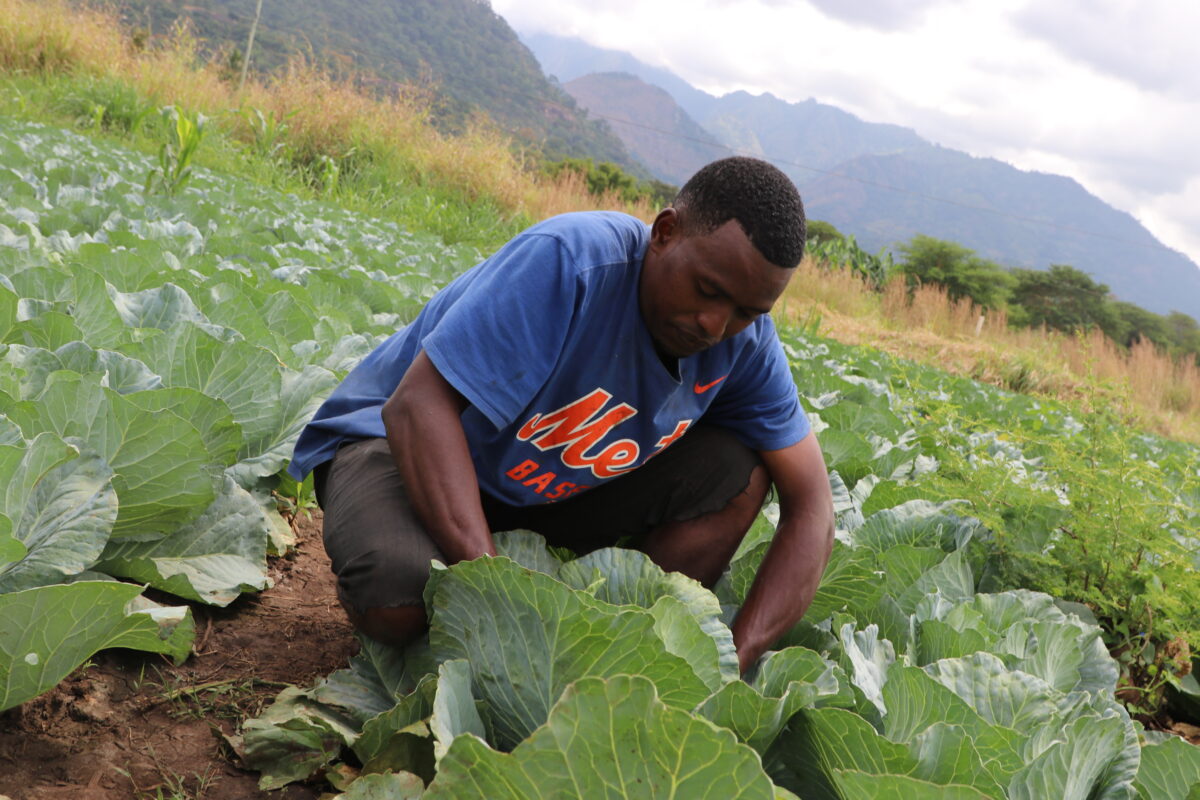
‘These are my valued employees,’ he says, proudly introducing us to four women diligently weeding the field. He explains that they play a crucial role in maintaining the farm’s success and productivity.
Sharing his inspiring journey, Kadudu attributes much of his progress to the Opportunity for Youth Employment (OYE) training programme. It is by the SNV Netherlands Development Organization. He says this training was the turning point in his life. It equipped him with valuable skills and knowledge in modern farming techniques, efficient resource management, and marketing strategies.
‘I was unable to complete my education. At one point, I felt like a failure. I was left with no choice but to join my parents in farming, though on a small scale. Lacking modern techniques on how best to do it, we did it traditionally,’ he explains.
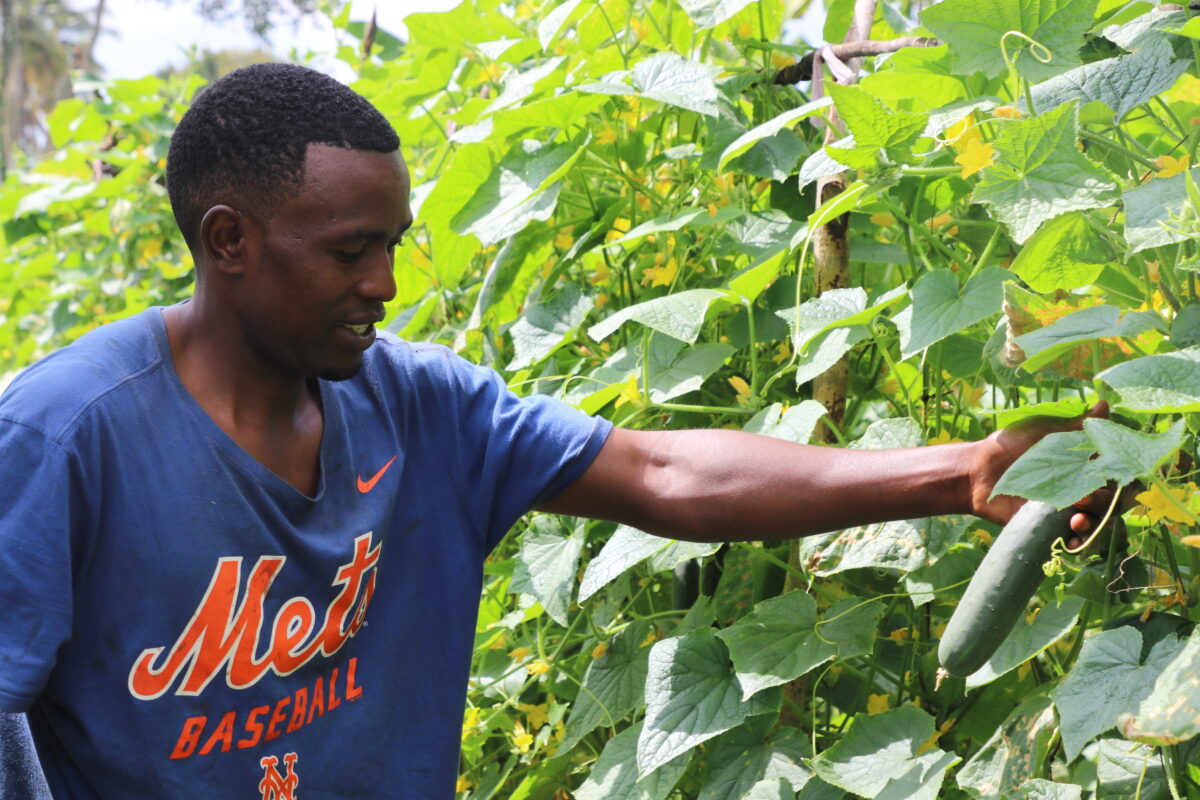
After three months of training—which included exposure to prominent Tanzanian farmers and the Nane–Nane Day agricultural show that was held in Morogoro in 2019—he was inspired. Nane–Nane (eight-eight) Day is celebrated annually on August 8th. It recognizes and honors the significant contribution of farmers to the economy.
‘I started farming seriously in 2021 with different crops such as cabbage, cucumber, tomatoes and watermelons,’ he reveals. His ability to spot and capitalize on market opportunities enabled him to establish sustainable connections with buyers in urban centres.
With unwavering commitment and tireless efforts, he has discovered profitable markets outside his village. This has made him establish a formidable presence in both the cities of Dodoma and Dar es Salaam. As a result, he has emerged as a pivotal figure in the agriculture industry. Today, he not only supports his family financially but also funds the education of his younger siblings. This is the opportunity he yearned for but never got.
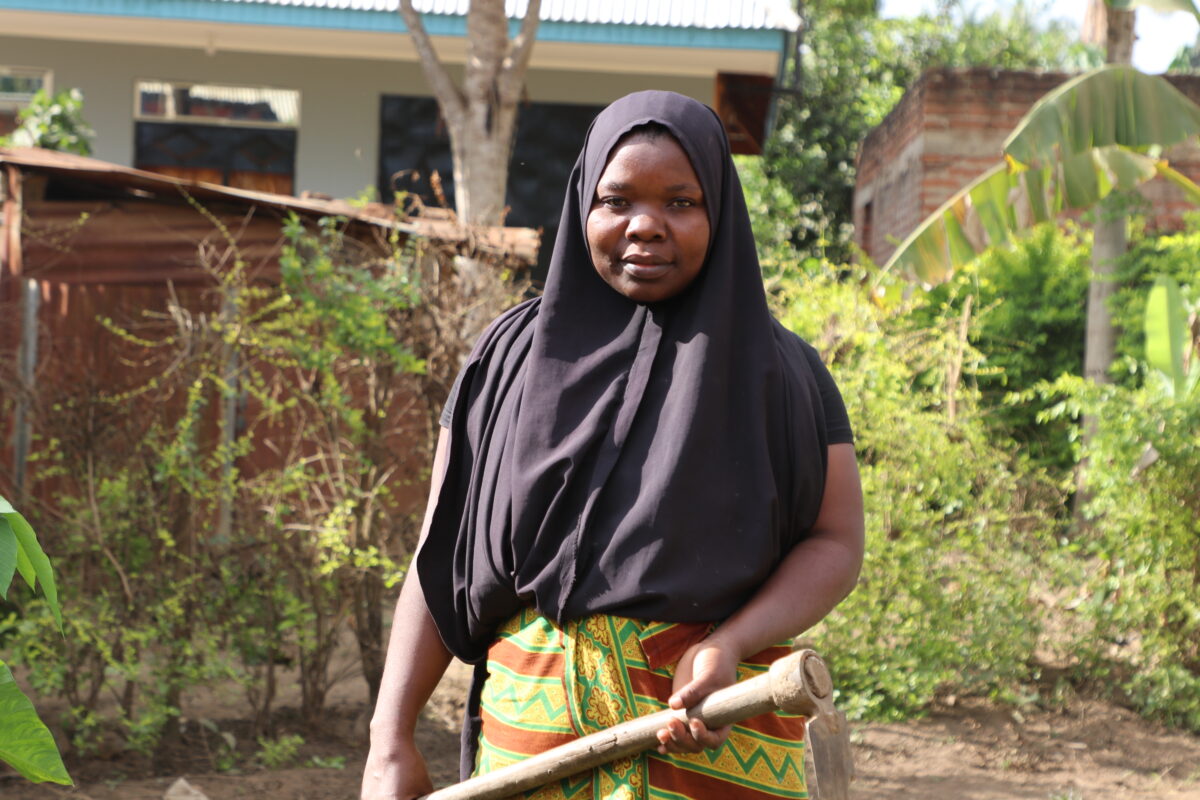
Hadija Omari Nassoro is a 30 -year-old mother of three from Konga village. Brushing aside the challenges that caused her to leave school at a young age, her unwavering determination and resilience paved the way for success in an unexpected field: farming.
After exploring the realm of agriculture, she discovered her true purpose and wholeheartedly embraced farming. With passion and dedication, she has attained financial independence, shattering the barriers that once hindered her progress. ‘I was orphaned at a young age, so life became difficult for my siblings and me,’ she narrates. ‘I even went to Dar es Salaam in search of greener pastures. Little did I know that I had left the pastures right here in the village.
‘When life became unbearable, I returned and was lucky to be among the youth in my village who benefited from the SNV’s OYE training programme.’ She admits that she enrolled in the programme without any particular expectations. She merely wanted to occupy her time and satisfy her curiosity.
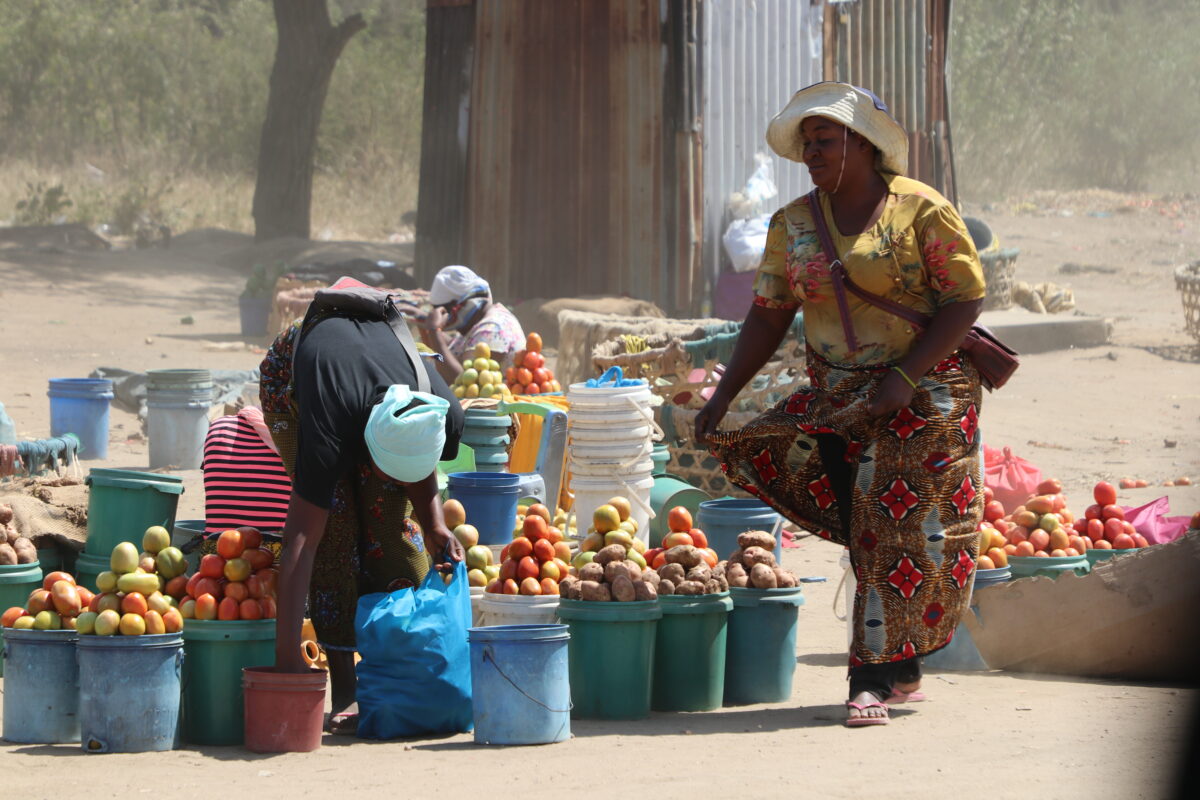
‘That was the beginning of a new journey in my life. The skills gained enabled me to become a farmer who embraces new techniques. Many young people run to the city for menial jobs, but I can attest that there are more opportunities here than in the city,’ she says.
In a region where opportunities for women are limited, Nassoro’s journey serves as an inspiring example of empowerment through agriculture. She can not only provide for her family but has also grown her agricultural enterprise to a point where she can securely invest in her future. She recently achieved a remarkable milestone by acquiring a piece of land. This accomplishment not only symbolises her success but also stands as a testament to the triumph of young farmers.
From Football to Farming
Hamisi Ramadhan, just like Kadudu and Nassoro, is another flourishing young farmer in his home village of Doma. The 28-year-old football enthusiast is a devoted follower of the Young Africans Sports Club, Yanga FC, a Tanzanian professional football club. He once aspired to become a renowned footballer but is now content with being a farmer. We meet him on his farm as he tends to tomato seedlings, nurturing them with precision and devotion. His grit and unmistakable passion are palpable.
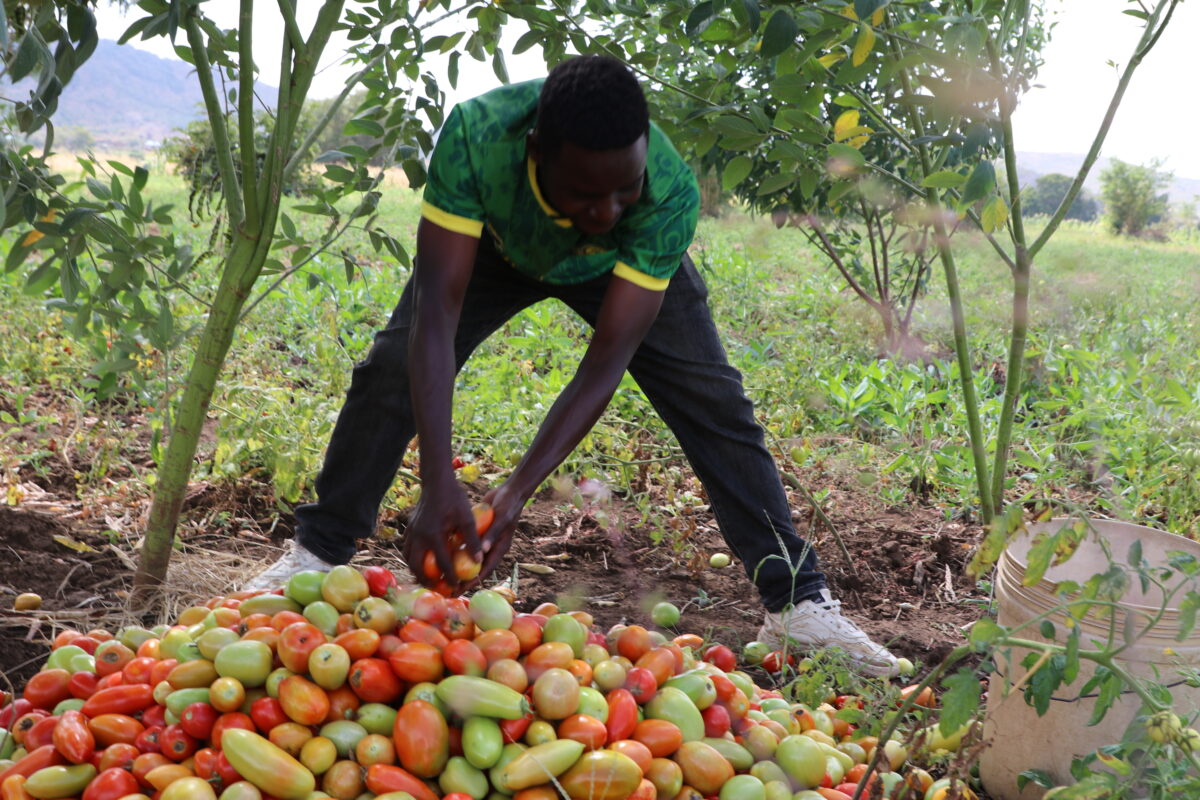
‘In about a week, I will be transferring these seedlings to a 3-acre farm. I began serious tomato farming in 2019 by applying the techniques I acquired from my training. I made a profit of Tsh.2.7 million (about $1,000) from that year’s harvest. It was unbelievable.’ He adds: ‘This motivated me further so in 2021, I invested more by farming on a 1-acre piece of land. This season I am looking forward to harvesting from a 3-acre piece. I have a ready market, especially from women who sell by the main Morogoro – Iringa Road. It is always busy with trucks from different Southern African countries.’
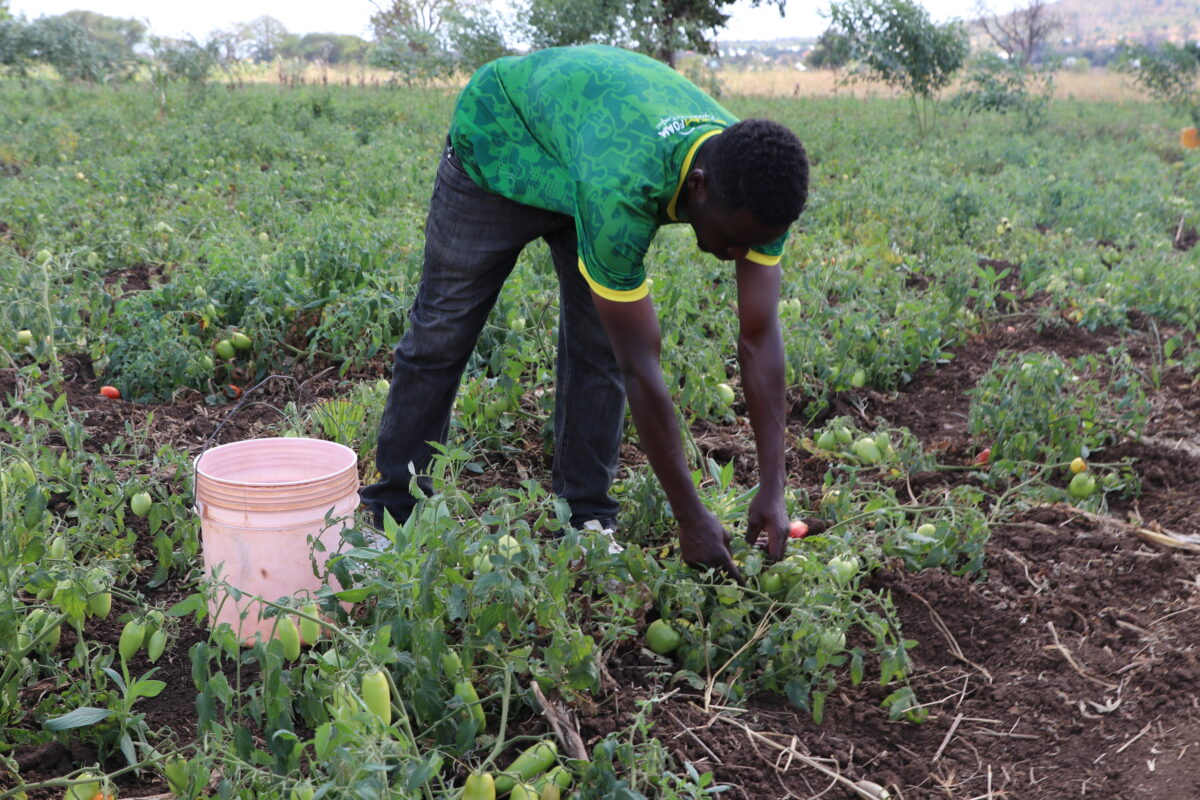
His journey is an inspiring example of how dreams can evolve and lead to unexpected paths of fulfilment. Although he is not gracing the football field as he once envisioned, he has discovered a new passion; nurturing crops and contributing to the agricultural landscape of Morogoro. Working side by side with his mother, it is evident that farming has become a family affair, fostering unity and generational knowledge transfer.
Challenges and Innovations
Despite their enthusiasm and dedication, young farmers in Morogoro face various challenges. The growth potential of farmers is hindered by limited access to modern farming techniques, inadequate financing options, and fragmented land ownership. These barriers impede their ability to thrive and succeed in their agricultural endeavours.
But these challenges have also ignited innovation. They are embracing technology, employing sustainable practices such as the use of solar panels, and forming cooperatives to pool resources and expertise. Amidst Africa’s pursuit of the formidable goal of eradicating hunger, it becomes evident that young farmers are pivotal in shaping a sustainable agricultural future for the continent. With a burgeoning young population, Africa faces both a challenge and an opportunity of unprecedented magnitude.

Jean Mwenda is the global youth employment and entrepreneurship lead at SNV Netherlands Development Organisation. She emphasises the transformative power of this demographic in the agriculture sector. ‘Young people have enormous untapped potential. All they require is an enabling environment with favourable policies that are conducive to triggering their capabilities.’
She argues that to truly harness young farmers’ potential, policymakers across Africa must prioritise youth-centric policies. ‘An enabling environment plays a crucial role in nurturing young farmers’ aspirations. This includes providing access to agricultural education, training, and mentorship programmes. Initiatives such as workshops, agricultural fairs, and on-field training sessions equip young farmers with modern farming techniques, climate-smart practices, and business acumen.’
Read more amazing stories on our Zero Hunger Special Edition below.
-
WORLD PRESS FREEDOM: A PRESS FOR THE PLANET – Vice Versa Global
03.05.2024[…] TANZANIAN YOUTH REVOLUTIONISE AGRICULTURE IN MOROGORO’S FIELDS. […]

Leave a Reply